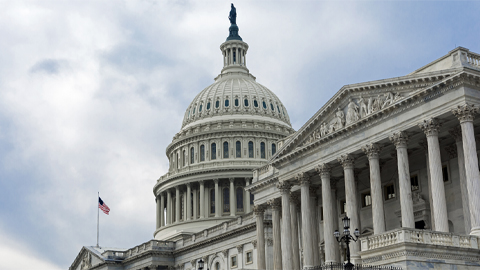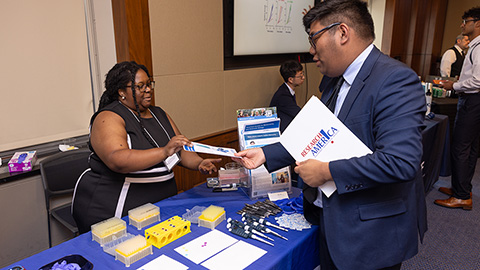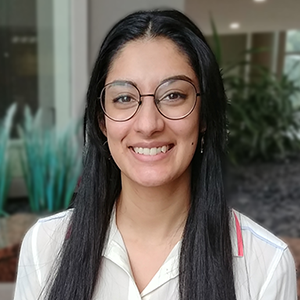Advocacy at #DiscoverBMB
The Public Affairs Advisory Committee and public affairs department of the American Society for Biochemistry and Molecular Biology have been busy advocating on behalf of ASBMB members in 2022 (read about our work), and we will continue to push many of these policy efforts in 2023. Our advocacy efforts are all focused on four issue areas:

- Addressing the rising cost of conducting science.
- Supporting the next generation of scientists.
- Increasing diversity, equity, inclusivity and accessibility in the research enterprise.
- Supporting international collaboration and international researchers.
One of our priorities for 2023 is to communicate clearly the importance of basic scientific research to policymakers; without basic research, the innovation pipeline in science would collapse. But policymakers don’t hear enough from scientists and science organizations about the importance of basic research. We’re hoping you, as members of the ASBMB, can help us change that.
Not sure how to be an advocate for science? At Discover BMB 2023, we’ll help with that. Here’s what we’re planning.
Advocate for basic scientific research
Come to the Advocacy Town Hall and learn how the ASBMB public affairs department and members of the Public Affairs Advisory Committee advocate for ASBMB members to policymakers at federal agencies and on Capitol Hill. During the second half of this event, committee members and staff will help you craft an email detailing the importance of basic scientific research to send to your representatives in the House and Senate.
How to engage in science advocacy
Not a letter writer? Many other avenues exist to advocate for sound science policy. Come learn what you can do at an ASBMB panel discussion with Public Affairs Advisory Committee members, delegates from our 2022 Advocacy Training Program, and science and technology fellows. We’ll talk about how you can spend a lot or a little time advocating for the scientific community, and you’ll get a chance to learn about how the ASBMB advocates for you. We welcome your questions and feedback.
Enjoy reading ASBMB Today?
Become a member to receive the print edition four times a year and the digital edition monthly.
Learn moreFeatured jobs
from the ASBMB career center
Get the latest from ASBMB Today
Enter your email address, and we’ll send you a weekly email with recent articles, interviews and more.
Latest in Policy
Policy highlights or most popular articles

Embrace your neurodivergence and flourish in college
This guide offers practical advice on setting yourself up for success — learn how to leverage campus resources, work with professors and embrace your strengths.

ASBMB honors Lawrence Tabak with public service award
He will deliver prerecorded remarks at the 2025 ASBMB Annual Meeting in Chicago.

Summer internships in an unpredictable funding environment
With the National Institutes of Health and other institutions canceling summer programs, many students are left scrambling for alternatives. If your program has been canceled or delayed, consider applying for other opportunities or taking a course.

Black excellence in biotech: Shaping the future of an industry
This Black History Month, we highlight the impact of DEI initiatives, trailblazing scientists and industry leaders working to create a more inclusive and scientific community. Discover how you can be part of the movement.

ASBMB releases statement on sustaining U.S. scientific leadership
The society encourages the executive and legislative branches of the U.S. government to continue their support of the nation’s leadership in science.

ASBMB and advocacy: What we accomplished in 2024
PAAC members met with policymakers to advocate for basic scientific research, connected some fellow members with funding opportunities and trained others to advocate for science.

